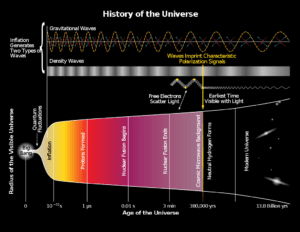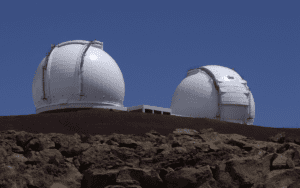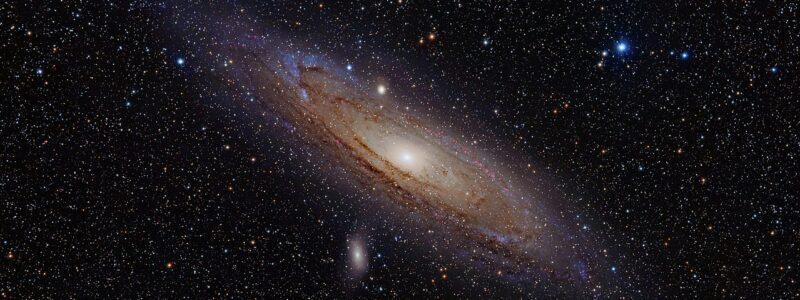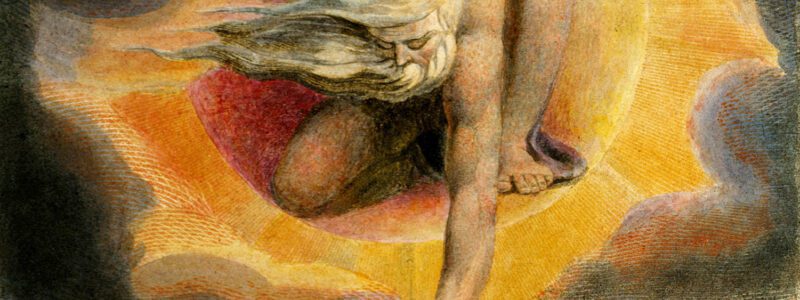Imaginary Time
Why Imaginary Time

Wrist Watch
Many cosmologists have struggled with the theological implications of cosmological theories suggesting a beginning of the universe. The absolute beginning poses nothing that existed prior to the origin of the universe from which the universe might develop.
Cosmologists struggling with the theological implications of such a beginning have suggested our universe is only one of many other universes outside of our own – perhaps an infinite number. This has been popularly termed the “multiverse” theory.
Thus far, it is only a theory as there has been no confirmatory evidence that such a multiverse even exists despite its incorporation into episodes of popular fiction such as Star Trek. The multiverse has achieved such popularity despite the lack of any evidence as to its existence as it serves several important theoretical functions.
One important function is its ability to explain the existence of our own universe with its fantastically improbable existence. There are multiple exquisitely tuned physical properties that must be precisely what they are for the matter to exist – let alone life. The multiverse with an infinite number of universes could explain the existence of our universe out of mere chance. With an infinite number of things, everything becomes possible.
Need for Absolute Beginning

By Original:
But it turned out that even with a huge number of universes there is still a need for an absolute beginning to everything.
As we have seen, the BGV theory showed there is no getting around the origin of everything including time at a single event called a “singularity.” Relatively states that everything began in that singularity including all space and time. This singularity represents a point in space and a start of time both at the same instant. The problem is that such a singularity would be consistent with a theological origin – an intelligent designer that brought space and time into existence “in the beginning.”
Perhaps the most famous cosmologist who struggled with the theological notion of a beginning of time was Stephen Hawking. He has become somewhat of a folk hero for many because he has tried to develop a means for excluding God from the creation event. This is probably one of the main attractions for his best-selling book, A Brief History of Time. It has become the best-selling science book of all time.
What makes the book unique and popular are his pronouncements on theological items inherent in his presentation of the Big Bang. Hawking was very straightforward concerning his explicit attempt to answer the fundamental questions of life, “What is the nature of the Universe? What is our place within the Universe? Where did we come from? What is the Universe the way it is?
Furthermore, he attempts to answer these questions in a purely mechanistic fashion through physics along with no room for any theological implications. He was married to a Christian (Jane) and knew how Scripture addresses these very issues with which he was struggling. From an interview, Jane Hawking noted in an interview for the Sunday Time she ignored the Biblical explanation,
There doesn’t seem to be room in the minds of people who are working out these things for other sources of inspiration. You can’t actually get an answer out of Stephen regarding philosophy beyond the realms of science. … I can never get an answer, I know it is very upsetting.
 The book A Brief History of Time is based upon a scientific paper Hawking and Hartle wrote concerning the state of the universe during the very early quantum gravity period. We have discussed this period and noted cosmology now knows there are significant restraints placed upon quantum events due to the flatness of space and the sharpness of bright distant objects such as quasars. This was not known in 1983 when his paper was written.
The book A Brief History of Time is based upon a scientific paper Hawking and Hartle wrote concerning the state of the universe during the very early quantum gravity period. We have discussed this period and noted cosmology now knows there are significant restraints placed upon quantum events due to the flatness of space and the sharpness of bright distant objects such as quasars. This was not known in 1983 when his paper was written.
In order to get around an absolute beginning, Hawking and Hartle hypothesized something called “imaginary time” in addition to real-time. It is proposed that at about the time of the universe’s creations, time gives way to space such that there is no time and only space. Carl Sagan noted in his introduction to A Brief History of Time, the Hartle-Hawking model is an effort to suggest,
a universe with no edge in space, no beginning or end in time, and nothing for a Creator to do.
The problem with this theory is not necessarily in the substance of the theory, but rather that it is brought about with absolutely no evidence, and only as a way to circumvent the need for a singularity. The need to prevent a singularity is in turn solely brought about by the need to obviate an intelligent designer.
Put another way, the imaginary time theory is not based on any evidence but only a wish to avoid God. But perhaps its greatest problem is that it is difficult to prove as it posits the existence of the universe before its creation. We are unable to evaluate something observational before it existed! However, the theory proposes several consequences which can themselves be evaluated. If these theoretical predictions are proven wrong or suspect, then so is the theory itself.
Critique of the Hartle-Hawking Theory and Imaginary Time
 The construct of something called “imaginary time” is purely imaginary; it has never been measured and its physical characteristics if any are unknown. It was developed purely as a means to escape the theological implications of space-time creation at an instant in time.
The construct of something called “imaginary time” is purely imaginary; it has never been measured and its physical characteristics if any are unknown. It was developed purely as a means to escape the theological implications of space-time creation at an instant in time.
But there are certain significant difficulties with the theory as presents in the original 1983 paper which places the theory at odds with what is now known about the physical universe; namely, it predicts phenomena that are now known to be false.
Closed Geometry. The Hartle-Hawking theory proposes a closed universe – the universe will eventually stop expanding and start to collapse back into itself from the force of its gravity. We now know this will not be the case; there is not enough matter to break the current universe expansion. The universe is actually accelerating in its expansion due to dark matter.
Empty Universe. Calculations have shown that the Hartle-Hawking theory predicts the universe would be very empty because it should be unimaginably larger than our current universe size. These calculations indicate that cosmic inflation could have expanded the universe to the point that it would be of such low density that it would be nearly empty.
Imaginary Time. Nowhere throughout the entire universe do we notice anything resembling “imaginary time.” It is an artificial construct made solely to defeat the singularity point of time origin of the universe. As Hawking noted in A Brief History of Time,
Only if we could picture the universe in terms of imaginary time would there be no singularities [cosmic beginning]. … When one goes back to the real time in which we live, however, there will still appear to be singularities.
Hawking recognized his construct of imaginary time as “just a proposal: it cannot be deduced from some other principle.”
The Grand Design Theory

By T. Wynne / JPL – http://planetquest.jpl.nasa.gov/images/keckTelescopes-hi.tif, Public Domain, Link
Stephen Hawking and Caltech theoretical physicist Leonard Mlodinow published another best-selling book called The Grand Design. Hawking was the first author of this book and makes his purpose plain,
This book is rooted in the concept of scientific determinism. … There are no miracles or exceptions to the laws of nature.
Hawking used the following proposals to support his assertion there are no miracles stating as scientific fact,
The discovery of extrasolar planets
makes the coincidences of our planetary conditions … far less compelling as evidence that the Earth was carefully designed just to please us humans.
He later claims,
As Darwin and Wallace explained how the apparently miraculous design of living forms could appear without intervention by a supreme being, the multiverse concept can explain the fine-tuning of physical law without the need for a benevolent creator.
We will evaluate extrasolar planets, Darwinian evolution, and the multiverse in separate posts. Suffice it to say they do not in any way mitigate against a “benevolent creator.”
Extraterrestrial Life
NASA has been sending rovers to evaluate the Martian for signs of life for many years. So far, there have been no definitive findings of any life forms on the planetary surface although several organic compounds have been discovered.
Suppose one day that NASA was to discover extraterrestrial bacterial life on the surface of Mars or another planet in our solar system. Would that mitigate against a “benevolent creator” of life on Earth?
This topic will also be discussed in another post because the answer is really very interesting. For a sneak preview, just say “no.”
Summary of Imaginary Time
Stephen Hawking is by far the most popular cosmologist. While he has recently passed away, his influence certainly lives on. He is admired by countless millions as the quintessential naturalist, spending his life trying to demonstrate how the cosmos could be created naturally without the intervention of a Creator.
He developed very imaginative suggestions such as something he called “imaginary time.” It is a good name because it exists only in the imagination. There has been no physical, empiric evidence for such an entity, and only exists as a construct trying to escape the seemingly inescapable fact of a singularity – that is, that the Universe was created at a point in time, and is not eternal or infinite in extent.
Stephen Hawking also posited how certain scientific discoveries such as the existence of exoplanets (planets orbiting around stars other than our sun), the “fact” of Darwinian evolution, and the imaginary construct of a multiverse as means to obviate the need for a Creator.
All these topics are discussed in greater detail elsewhere.
What is important to recognize is that while these proposals made by Hawking were considered frontal attacks upon a Creator several decades ago, further research into each of these areas have mitigated against their being an important threat.
As with other areas of scientific inquiry, the more that is known, the more science affirms the existence of a Creator. Be it in biology, geology, astrophysics, cosmology and even philosophy, the more that is known, the greater the existence of a Creator becomes more obvious. I expect this trend to continue in the future.




